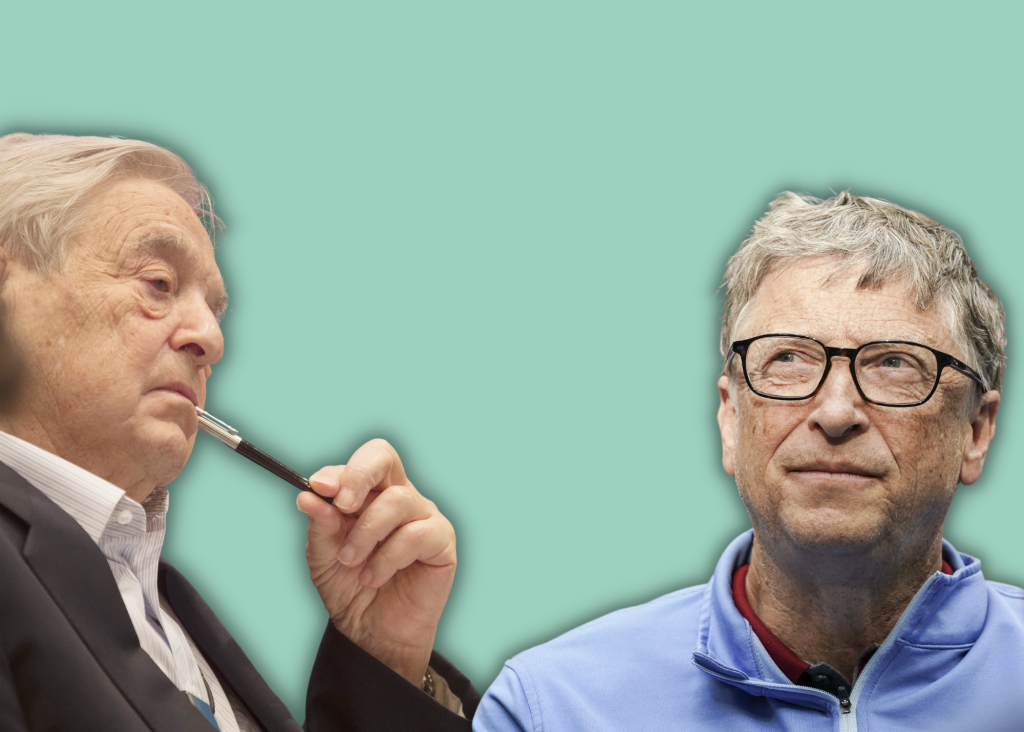What’s happening to the Open Society Foundations? That’s a question likely to be on the minds of people in the philanthropy universe and well beyond.
A joint announcement by the Chair and President of OSF at the end of last week stated that ‘significant changes’ were being introduced which required ‘difficult decisions’ to be made. Speculation that staff cuts and office closures were underway was re-enforced by briefings first reported in Bloomberg that Soros Foundations would cut 40 per cent of its almost 1,000 staff. The announcement of these changes come just one month after the announcement that control of the foundation would be handed over from George Soros to Alexander, one of his five children, just added to the uncertainty.
The news of this upheaval brought to mind my sabbatical days at Stanford University. Back in 2013, our Polisci 101 students were asked to write essays comparing and contrasting the philanthropy of Bill Gates and George Soros – the leading billionaires of the day exercising huge influence on the public sphere through the deployment of extraordinary volumes of philanthropic wealth.
While credit was given to students who perceived stark differences between the philanthropists –philosophical outlook, causes areas and contrasting style – it’s arguably the similarities that recent events have brought into sharper focus. Most notably, both men presided over what are – in essence – family foundations. That’s a critical but often overlooked fact. The appearance of major global operations with thousands of professional staff has arguably obscured the fact that these are family-driven enterprises. In the case of both the Gates and Soros philanthropic empires, it’s a family office which not only handles control of available resources and investments but – critically – leaves a deep imprint on both the grantmaking and governance of the foundations – potentially storing up problems which re-surface at different points.
In the case of Gates, the foundation was governed until recently by three members of the family: Bill Gates, Melinda French Gates, and Bill Gates senior, together with their friend and Gates Foundation donor, Warren Buffett. For a long time, their good intentions, huge weight of resources, global view, analytical skills, and relentless pursuit of impact at scale – all combined with Bill Gates own brand as computer genius turned full-time philanthropist – gave Bill Gates himself through the vehicle of his foundation a unique status as the world’s leading humanitarian and philanthropist. Judging by his ongoing access to world leaders, he still enjoys the power of a president but with little of the accountability.
But the gloss has come off. Soon after the death of his father in 2020 and Warren Buffett’s disengagement from the board, Bill and Melinda announced their divorce. That led to a crisis of governance with a situation in which a divorcing couple were governing the world’s largest philanthropic institution.
These governance challenges coincided with reports in the New York Times that a former Microsoft employee had experienced sexual harassment and – separately – reports of Bill Gates association with the late Jeffrey Epstein, which Gates has conceded was ill-judged.
It’s therefore not surprising that the governance of the foundation has begun to be overhauled in the wake of these challenges. New board members have been brought on including Indian philanthropist Ashish Dhawan where notably some of the foundation’s global health and sanitation efforts are focused.
But if the governance of the Gates Foundation has been less than exemplary, then it’s worth comparing it to what’s happening at OSF.
For many years, there has been concern and speculation in equal measure about the future of the multi-billion-dollar foundation with its chairman and pioneer George Soros in his nineties. Soros’s vision for the foundation was perhaps best articulated in his 2011 New York Review essay titled My Philanthropy. The question became how would his philanthropy survive, adjust and change with someone else steering the ship?
There is little doubt that major disruption is coming as these questions begin to be answered. But to understand what’s happening, it’s worth looking at some of the key chronology.
First, George Soros announced in 2017 that he was transferring $18 billion to the foundation.
Then, in 2021, the presidency of the foundation was ‘placed in the hands’ of British diplomat Mark Malloch-Brown following the abrupt departure of Patrick Gaspard, its former CEO. An OSF spokesperson told Alliance at the time in previously un-reported comments that ‘our founder and chairman George Soros felt it important to place the organization in the hands of someone that he, our deputy chair Alex Soros, and our global board knows and trusts’. The spokesperson added that Malloch-Brown served on the global board, had been involved with Open Society for more than three decades, and shared Soros’s philosophy and vision for the foundations thus ‘ensuring a swift and smooth transition at a time of immense challenge to open society values around the world’.
In June 2023, the foundation announced that Alexander Soros would succeed his father as chairman, news which was covered widely across the media. Alexander has been pictured frequently in recent months with leading Democratic politicians while being reported as saying he is ‘more political’ than his father. There has been much speculation about what that means and what it signals but there was no public indication of the bombshell briefing which followed last week: that the foundation would cut 40 per cent of its staff.
It’s also unclear what this will mean for the future of country offices, with some speculation that the UK office will close alongside those reported already in this analysis. There is also uncertainty about the level and direction of grantmaking. Grantees will be watching closely.
For many years, OSF has seemed like a magnificent, towering but decaying lighthouse – a beacon of liberal values, progressive civil society and human rights. But its philanthropic work has met with mixed success. As opponents on the authoritarian right ascend, OSF has been evicted from Russia, declared persona non grata in Hungary where Soros himself has been a lightning rod for antisemitic attacks. OSF’s standing in India and across Asia is precariously balanced as it supports unpopular and marginalised groups and fights against caste discrimination, supports for LGBT groups and the Roma community.
In short, OSF has been a pioneer of progressive political philanthropy.
But it’s also been known in some circles as a dysfunctional grantmaker. Grantees can find themselves passed from one programme to another, funding processes and decisions can be opaque and hard to navigate. And yet, support from OSF is highly valued by its recipients not just for the money but for the sense of being part of a wider cause for solidarity, social justice and a better world. Or in the view of Elon Musk, a worse world. He accused Soros earlier this year of ‘hating humanity’ after the financier sold off his shares in Tesla.
It’s against this backdrop that the future of the Open Society Foundations raises such emotion and mixed reaction well beyond the clubbable philanthropy world.
For a foundation promoting democratic and accountable governance around the world, many will be hoping that the foundation makes the transition to a modern democratic philanthropic institution so desperately needed by the world at this time – all while retaining the animating spirit and progressive vision which George Soros brought to the foundation from its earliest days.
The transition to Alexander Soros represents a new era not just for OSF. He has much to prove, and time will tell whether the new leadership and direction can meet the challenges of the times. It’s likely that OSF partners and fellow travellers will be hoping that the new leaner operation which eventually emerges will both look very different but do more of the same. That’s a tall order of the 37-year-old incumbent. Let’s hope he gets the advice he needs at this critical time both for the foundation and civil society at large.
Charles Keidan is Executive Editor at Alliance.
Credit:Source link



